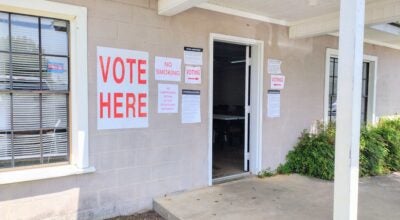State sees rise in tax scams
Published 2:21 pm Tuesday, December 1, 2015
Tax scams and fraud are on the increase as more and more people file returns electronically.
The Alabama Department of Revenue wants taxpayers to be aware of several steps they can take to prevent them from being victims.
ADOR joined with the Internal Revenue Service and the private-sector tax industry this year to create new safeguards for 2016, and the partnership wants to let taxpayers know how they can protect themselves.
“Criminals have access to excessive amounts of personal data, which they use to file fraudulent tax returns,” said Revenue Commissioner Julie Magee. “Our message today is we need your help. We all have a role to play. We want you to be aware of the security steps you can take — online and at home — to better protect your data from cybercriminals.”
Magee joined IRS Commissioner John Koskinen and other state and industry leaders today to unveil the “Taxes. Security. Together.” campaign at an event in Washington, D.C.
The campaign is a product of the Security Summit, a collaborative effort started in March between the states, the IRS and the tax industry to combat tax fraud. Magee serves on the Security Summit’s Authentication and Financial Services workgroups.
“Taxes. Security. Together.” is designed to raise public awareness that even routine actions on the Internet and personal devices can affect the safety of taxpayers’ financial and tax data. A few steps you can take to better protect yourself:
*Use security software with firewall and anti-virus protections.
*Use automatic updates. Encrypt your tax returns and other sensitive data. Use strong passwords.
*Beware of phishing emails. A link may take you to a fake website that is designed to steal your login information. The attachment you open may include a program that allows a thief to get into your sensitive files.
*Beware of phone scams. If you get a call from an aggressive or belligerent person who says you will be sued or jailed if you don’t make an immediate payment, know this: that person is a fraud.
If you need to make sure a call is legitimate, you can always hang up, and then dial ADOR yourself.
*Protect your personal information. Treat your Social Security number, your driver’s license number and other personal data as you would cash – don’t leave it lying around. Don’t overshare on social media.
*Shred your old tax returns and documents with your name, address, bank account numbers and credit card information. Proper shredding cuts on a diagonal and creates tiny pieces, not long, easy-to-reassemble strips.
*Check your credit reports and Social Security Administration accounts regularly. In addition to refund fraud, thieves can take out loans using your credit or your children’s credit.
*Know your tax preparer. If you like to file your return online, start at revenue.alabama.gov or at IRS.gov – they’re legitimate. If you like to file using installed software, buy your software from a trusted retailer, or by going directly (not clicking a link) to your preferred software company’s website. If you use an accountant, make sure it’s someone you know will be available after April 15. Don’t let any preparer take your refund and then pay you directly.
*And finally, when you see new questions, lockout features and password requirements for logging in to tax preparation products, feel good about it. Know that these new features are in place for your protection, and that the requirements are in place for every single tax preparation company.




